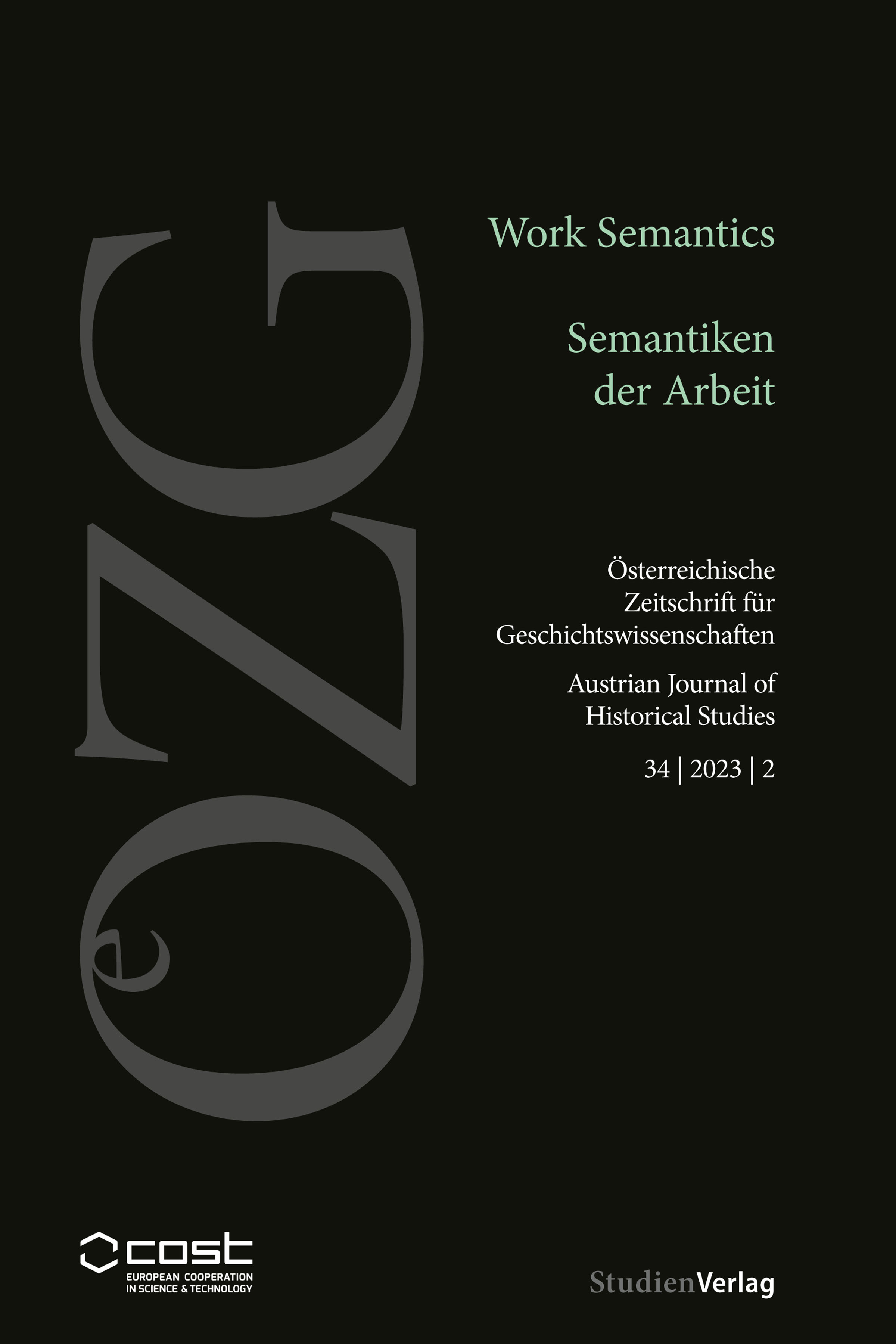Work Semantics. In Search of an Alternative Conceptual Matrix for Labour and Social Historians
DOI:
https://doi.org/10.25365/oezg-2023-34-2-1Keywords:
labour history, social history, historical semantics, language use, COST Action “Worlds of Related Coercions in Work” (WORCK)Abstract
The idea for the project presented in this volume began with an encounter and a discovery. When we – a medievalist and a sinologist – first met in autumn 2017, we realised that although we came from different disciplines and worked on different regions and time periods, we were struggling with the same problem: As historians working on slaving practices in the Venetian empire (14th–16th centuries) respectively servitude in late imperial China (15th–19th centuries), we were both spending much of our time explaining the contextual differences and similarities between the social configurations we were studying to the broader community of social, labour, and global historians. We both felt that our objects of study did not fit well within the much-debated subfield of “free and unfree labour”, and that the postcolonial critiques and the so-called global turn in history did not solve the conceptual problem we were facing. Integrating a medieval or Chinese case study into a conference panel or a special journal issue on household service or slavery helped to enlarge the horizon of the historiographical debates on the history of unfree labour relations, but the umbrella terms of these subfields of study and the limited conceptual references
available did little to help us understand and properly convey the social taxonomies shaping the power relations we were studying.
Downloads
Published
How to Cite
Issue
Section
License
Copyright (c) 2023 Austrian Journal of Historical Studies

This work is licensed under a Creative Commons Attribution 4.0 International License.


